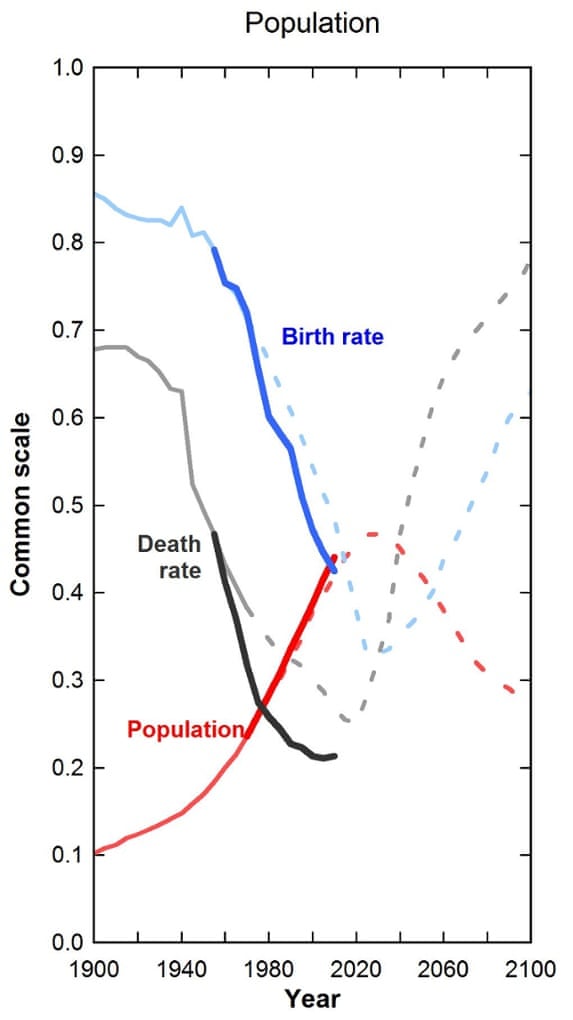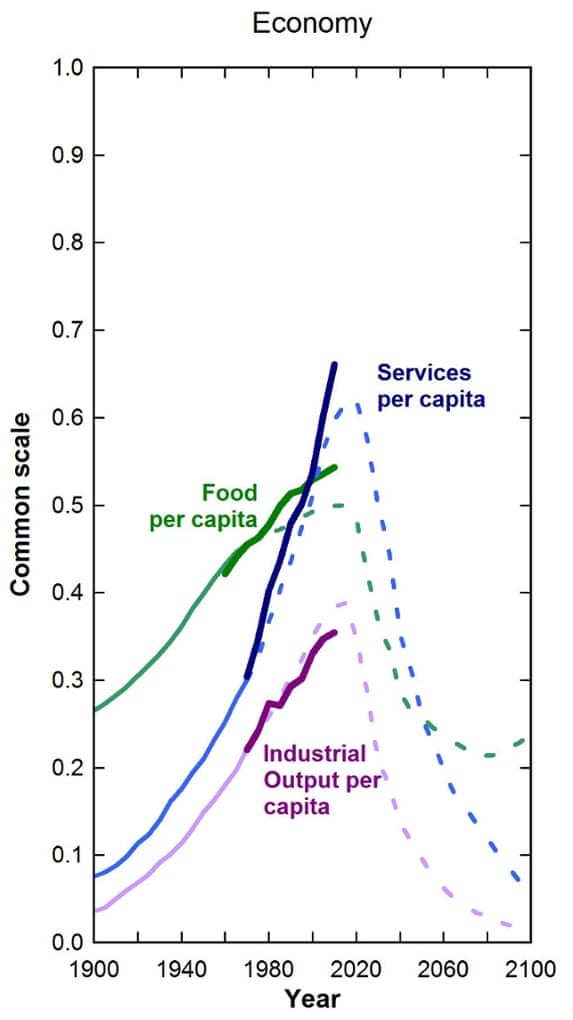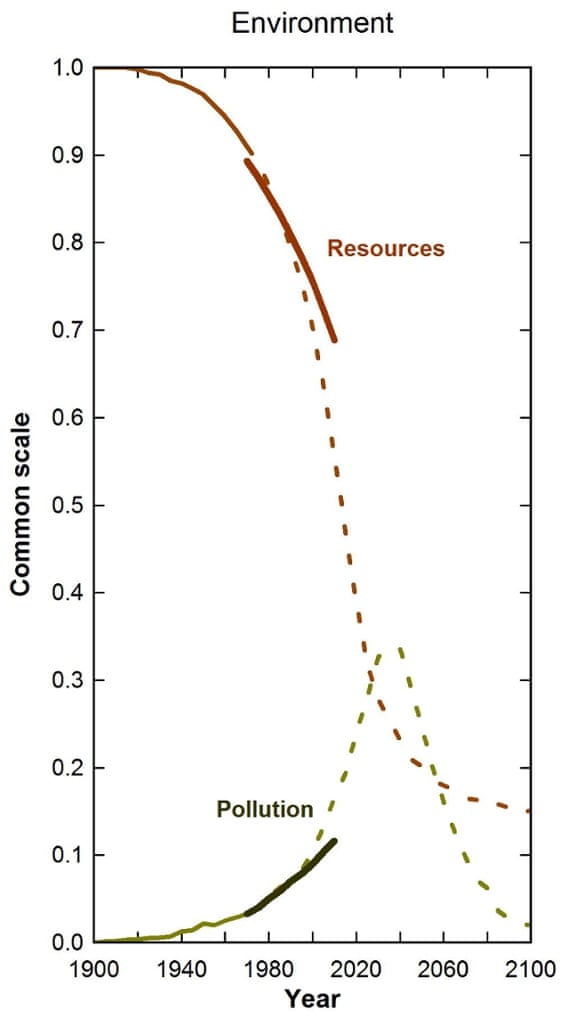Peak Meaninglessness | John Michael Greer

March 4, 2015 (Archdruid Report) -- Last week’s discussion of externalities -- costs of doing business that get dumped onto the economy, the community, or the environment, so that those doing the dumping can make a bigger profit -- is, I’m glad to say, not the first time this issue has been raised recently.
The long silence that closed around such things three decades ago is finally cracking; they’re being mentioned again, and not just by archdruids. One of my readers -- tip of the archdruidical hat to Joe McInerney -- noted an article in Grist a while back that pointed out the awkward fact that none of the twenty biggest industries in today’s world could break even, much less make a profit, if they had to pay for the damage they do to the environment.
Now of course the conventional wisdom these days interprets that statement to mean that it’s unfair to make those industries pay for the costs they impose on the rest of us -- after all, they have a God-given right to profit at everyone else’s expense, right? That’s certainly the attitude of fracking firms in North Dakota, who recently proposed that they ought to be exempted from the state’s rules on dumping radioactive waste, because following the rules would cost them too much money. That the costs externalized by the fracking industry will sooner or later be paid by others, as radionuclides in fracking waste work their way up the food chain and start producing cancer clusters, is of course not something anyone in the industry or the media is interested in discussing.
Watch this sort of thing, and you can see the chasm opening up under the foundations of industrial society. Externalized costs don’t just go away; one way or another, they’re going to be paid, and costs that don’t appear on a company’s balance sheet still affect the economy. That’s the argument of The Limits to Growth, still the most accurate (and thus inevitably the most reviled) of the studies that tried unavailingly to turn industrial society away from its suicidal path: on a finite planet, once an inflection point is passed, the costs of economic growth rise faster than growth does, and sooner or later force the global economy to its knees.
The tricks of accounting that let corporations pretend that their externalized costs vanish into thin air don’t change that bleak prognosis. Quite the contrary, the pretense that externalities don’t matter just makes it harder for a society in crisis to recognize the actual source of its troubles. I’ve come to think that that’s the unmentioned context behind a dispute currently roiling those unhallowed regions where economists lurk in the shrubbery: the debate over secular stagnation.
more
http://worldnewstrust.com/peak-meaninglessness-john-michael-greer
Demeter
(85,373 posts)A small farm can recycle its plant and animal wastes safely and effectively. In fact, it would become infertile and unprofitable if it didn't.
A factory farm, however, creates so much waste that it's a danger to itself and its operations, as well as the surrounding neighborhood and watershed. A factory farm in essence has no method of recycling. The best it could do is sell off the waste and ship it to another factory as raw material for conversion to compost or other products. The worst it could do is holding ponds and other non-solutions.
The same inefficiencies of scale occur in manufacturing. A small, well-run operation can eliminate waste and prevent pollution using recycling and other sustainable techniques. If it doesn't, the government regulations and the costs will make the manufacturer unprofitable and it will fold.
But a big manufacturer can blackmail the government, conceal its problem, and buy itself favorable rules and regulations.
And as for businesses that mostly generate paper...most of them can be successfully shut down, with no loss to the economy. Exceptions: bookbinders. And their employees can get real jobs that produce wealth.
Tace
(6,800 posts)Unfortunately, it almost certainly will take the impending collapse of industrial society described in Greer's essay to create the sustainable down-sizing you describe.
To any readers who think I'm being alarmist about the imminent collapse of industrial society, this Guardian link on "Limits To Growth," provided in Greer's essay, is very sobering, indeed. Check out the charts, and look at the time-frame. We're at the very top of a hairy slide to a new, very different world with a lot fewer people. And, this won't take centuries, but only a few short years. And the collapse has already begun.
Guardian: Limits to Growth was right. New research shows we're nearing collapse:
http://www.theguardian.com/commentisfree/2014/sep/02/limits-to-growth-was-right-new-research-shows-were-nearing-collapse

Solid line: MIT, and research in bold. Dotted line: Limits to Growth ‘business-as-usual’ scenario.

Solid line: MIT, and research in bold. Dotted line: Limits to Growth ‘business-as-usual’ scenario.

Solid line: MIT, and research in bold. Dotted line: Limits to Growth ‘business-as-usual’ scenario.
http://www.theguardian.com/commentisfree/2014/sep/02/limits-to-growth-was-right-new-research-shows-were-nearing-collapse
4dsc
(5,787 posts)There are but a handful of people here who realize our current economic model is not sustainable while the rest go about their merry way in denial.
So what do you do?